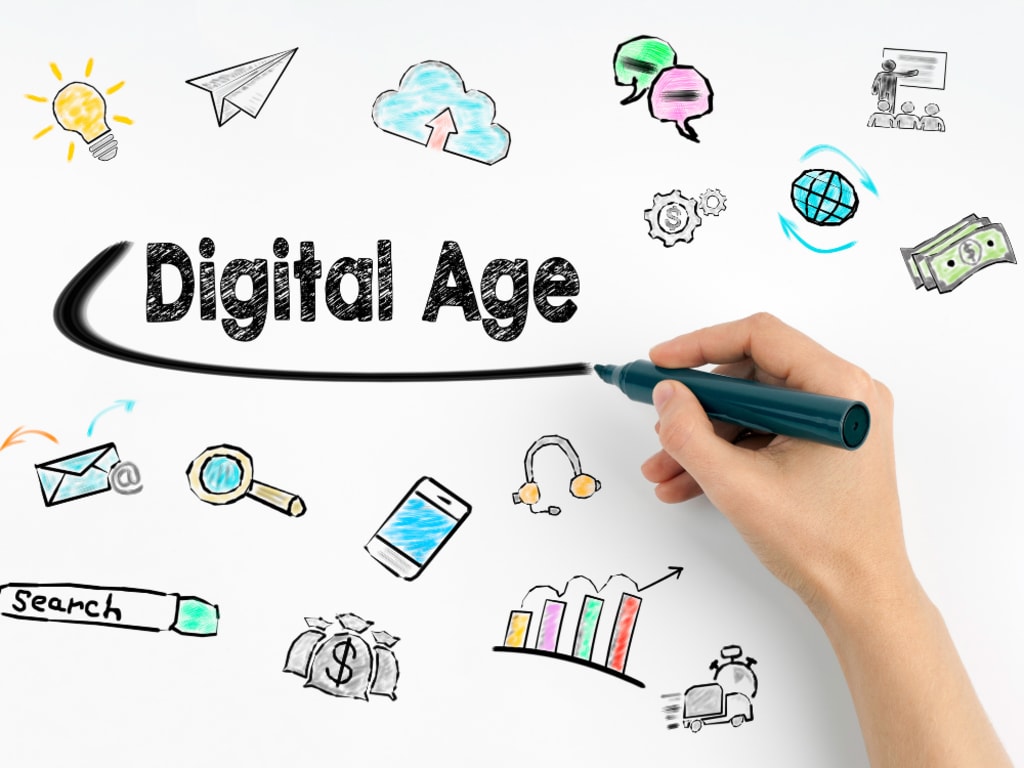The Changing Landscape of Education in the Digital Age
Education is undergoing a transformative shift in the digital age, as technology revolutionizes teaching and learning methods

In the digital age, education is experiencing a transformative shift as technology revolutionizes the way we learn and teach. With the rapid advancements in digital tools, online platforms, and interactive resources, the educational landscape is evolving at an unprecedented rate. In this article, we will explore the changing face of education in the digital era and delve into the ways technology is reshaping teaching and learning methods.
Online Learning: Breaking Barriers, Expanding Horizons
The rise of online learning has opened up a world of possibilities, providing students with access to educational resources and programs regardless of their geographical location. Online learning platforms offer flexibility and convenience, enabling learners to study at their own pace and from the comfort of their own homes. Whether it's pursuing a degree, acquiring new skills, or accessing supplementary educational materials, online learning has democratized education, making it accessible to individuals of all backgrounds.
Virtual Classrooms: Connecting Learners in a Digital Space
Virtual classrooms have emerged as a powerful tool for bridging the gap between distance and engagement. Through video conferencing, collaborative tools, and interactive platforms, students and educators can come together in a virtual environment to participate in discussions, share ideas, and engage in real-time learning experiences. Virtual classrooms provide an opportunity for students to interact with peers from around the globe, fostering cross-cultural understanding and enhancing collaboration skills. Additionally, virtual classrooms allow for the seamless integration of multimedia resources, presentations, and demonstrations, making the learning experience more immersive and interactive.
Personalized Learning: Catering to Individual Needs
With the aid of technology, personalized learning has become a reality, enabling educators to tailor instruction to the specific needs and learning styles of each student. Adaptive learning technologies utilize data analytics and artificial intelligence to track students' progress, identify areas of strengths and weaknesses, and provide targeted content and feedback. This personalized approach ensures that students receive individualized support and guidance, allowing them to learn at their own pace and maximize their potential. By catering to individual needs, personalized learning promotes student engagement, motivation, and academic success.
Gamification: Making Learning Engaging and Fun
Gamification has gained traction in the educational landscape by integrating game elements and mechanics into the learning process. By incorporating elements such as points, levels, badges, and challenges, gamification transforms learning into an interactive and enjoyable experience. It harnesses the inherent human desire for competition, achievement, and rewards, motivating students to actively participate and excel in their educational journey. Gamification not only enhances student engagement but also fosters problem-solving skills, critical thinking, and collaboration as learners tackle challenges and overcome obstacles in a playful and immersive environment.
Augmented Reality and Virtual Reality: Immersive Learning Experiences
Augmented reality (AR) and virtual reality (VR) technologies are revolutionizing education by providing immersive and interactive learning experiences. AR overlays digital content onto the real world, while VR creates a simulated environment for users to explore. These technologies allow students to visualize complex concepts, take virtual field trips, and engage in interactive simulations that enhance their understanding and retention of information. Whether it's exploring ancient civilizations, diving into the depths of the ocean, or conducting virtual experiments, AR and VR offer new dimensions to learning that captivate students' attention and spark their curiosity.
Collaborative Learning: Connecting Learners Globally
Technology has facilitated the rise of collaborative learning, enabling students from different parts of the world to connect, communicate, and collaborate on projects and assignments. Digital tools such as video conferencing, online discussion forums, and collaborative platforms foster global connections, promote cultural exchange, and encourage teamwork. Collaborative learning not only enhances students' social skills but also exposes them to diverse perspectives and ideas, preparing them for the interconnected and globalized world they will navigate in the future.
Data-Driven Decision Making: Enhancing Educational Outcomes
The digital age has ushered in an era of data-driven decision making in education. With the collection and analysis of student data, educators can gain valuable insights into student performance, identify areas that require intervention or improvement, and tailor instructional strategies accordingly. This data-driven approach allows educators to personalize instruction, provide targeted support, and optimize educational outcomes. Additionally, data analysis can inform educational policy and curriculum development, leading to evidence-based practices that promote student success.
Lifelong Learning: Empowering Individuals in a Rapidly Changing World
In the digital age, the pursuit of knowledge is no longer limited to traditional educational institutions. Technology has made learning resources readily accessible, empowering individuals to engage in lifelong learning. Online courses, open educational resources, and digital libraries offer a wealth of information and opportunities for personal and professional development. Lifelong learning has become essential in a rapidly evolving world, where individuals need to adapt and acquire new skills to thrive in their careers and personal lives.
The changing landscape of education in the digital age is reshaping the way we learn and teach, providing opportunities for enhanced engagement, personalization, collaboration, and lifelong learning. As technology continues to evolve, educators must embrace these advancements and adapt their instructional practices to meet the needs of digital learners. By harnessing the power of technology, education can become more accessible, inclusive, and impactful, preparing students for success in an increasingly interconnected and fast-paced world. It is through the integration of technology and pedagogy that we can truly unlock the full potential of education in the digital era.
Enjoyed the read? Show your support for my future pieces with a small contribution. Every gift counts!
About the Creator
Gokhan Polard
As an experienced ERC Referral Specialist, my primary dedication lies in assisting businesses in the journey towards financial success. https://ercsolutionshub.com/
Enjoyed the story? Support the Creator.
Subscribe for free to receive all their stories in your feed. You could also pledge your support or give them a one-off tip, letting them know you appreciate their work.






Comments
There are no comments for this story
Be the first to respond and start the conversation.